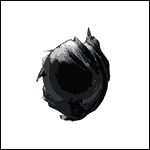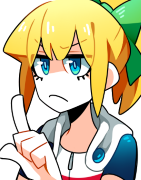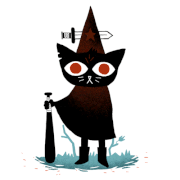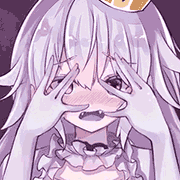- Adbot
-
ADBOT LOVES YOU
|

|
|
#
?
Apr 24, 2024 08:34
|
|
- Raenir Salazar
- Nov 5, 2010
-
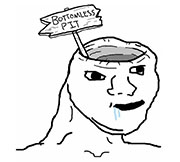
"According to Wikipedia" there is a black hole that emits zionist hawking radiation where my brain should have been
I really should just shut the fuck up and stop posting forever
-
College Slice
|
Alice in Wonderland is an isekai.
More seriously, I find isekai has a lot of literary merit; many isekai that exists may or may not; but there is nothing inherently lacking in merit in the concept.
Isekai is a variation of the Hero's Journey. If you broadly define it as, "A person in the contemporary modern world, or at least a world recognizable as our own and a character who we can immediately relate to as not dissimilar in their issues to ourselves; travels to another world to engage in a fantastical but not necessarily a purely fantasy adventure (so science fiction settings are fine, or non-magic settings and so on, even time travel is fine; this means Doctor Who is also Isekai)."
Now consider the above thought more deeply.
Alice in Wonderland is an Isekai.
The Lion, the Witch and the Wardrobe is an Isekai.
Doctor Who is an Isekai.
Dante's Inferno is an Isekai
Sword Art Online you'd think is an isekai but it only really jumps on the Isekai bandwagon in the Alicization arc. So if Log Horizon and .Hack are also Isekai under this definition I think we've actually have entirely ill defined our genre, and in fact have entirely mistaken genre for storytelling.
Basically why do all of these different shows have so much in common?
Because Joseph Campbell.
Because of Hero with a Thousand Faces and the Hero's Journey.
I'm no literary expert so I am referring to google for the details but the three act structure of the Hero's Journey mostly tracks to all of these shows.
The Departure.
Which is divided into five steps. The ordinary world. Almost every new season in Doctor Who has this when it introduces new companions. Alice in Wonderland has this, I forget if Dante's Inferno had this but I think it skipped it. Most anime has this, prior to being run over by a truck, visions of escaflowne had it for sure. The following steps are Call of Adventure, Refusal of the Call (Optional), Meeting the Mentor (this can be often out of order), and then Crossing the First Threshold.
For Doctor Who this is entering the TARDIS "It's bigger in the inside!" the first indication that their world is going to completely change. For Kirito its booting up (to the audience perspective) SAO for the first time, alice in wonderland is falling down the hole. For Dante it's the "Abandon all Hope" gateway, a literal gate. For most Isekai, especially the "Is killed by a truck and meets a goddess" a number of these steps happen at the sametime.
For most isekai, like Re;Zero:
-The Ordinary World: Subaru in the middle of the night getting fast food from a convenience store.
-The call of adventure: Subaru getting a premonition, which he dismisses (Refusal of the Call).
-Meeting the Mentor: Happens later, is actually substituted with the Mother Figure instead (Emilia), but is arguably could be split between the various characters that help him grow. But in many other Isekai, as an example the comedy KonoSuba, it's meeting Aqua before Kazuma enters the new world after being hit by a truck.
-Crossing the Threshold: Subaru takes a step and suddenly appears in the Fantasy world, literally crossing some threshold or being pulled across it by the Witch, I haven't read the LN's so I don't know.
Subaru is a noteworthy example in that he didn't die or be reincarnated to that other world, so he's one of the few modern isekai protagonists for whom The Return Act exists in a traditional form. For most isekai these days, like KonoSuba, but lets say Tanya: Saga of the Evil or I'm a Spider Now, So what? They died to cross the threshold, hence there is no return act.
Or is there?
I think the hint lies in the Departure Act. We went from a metaphorical crossing of the threshold to its replacement with a literal crossing of the threshold; perhaps the Return Act is similarly replaced. Instead of literally returning home, the Hero or Heroine, returns to a metaphorical home, a state of mind where they have learned important lessons and made a new home for themselves as a complete, fully self-actualized person in their new environment. They have not so much as "returned" home, as they have instead found their home. Afterall, "Home is where the heart is".
Bearing in mind I draw a line between traditional pre-isekai or proto-isekai like Visions of Escaflowne or "Now and Then, Here and There" where they go over and come back having a traditional three-act hero's journey. And the modern Isekai of "Hit by a truck and reincarnates". I think a key thematic undercurrent to most modern isekai is the concept of Alienation.
A large number of isekai protagonists are similar, loser otaku's/neets, who feel abandoned by society, who don't hold meaningful relationships with others, they all live meaningless, inconsequential lives. They are listless, playing games, eating junkfood, whatever family relationships that exist have been destroyed by consumerist, capitalistic forces such that they feel alienation in both the society at large and in their immediate family unit.
People focus too much on the wish-fulfillment power fantasy aspects of Isekai and I think don't give enough credit to these prevalent themes and why they're meaningful social commentary; especially regarding Japan in particular but can be broadly applicable to any modern society. People are dehumanized by capitalism, their existence is meaningless except as defined by their monetary value. So many cut themselves off from society. The ordinary world is much darker, dystopian, and bleak in the case of many modern isekai; it is negative and malicious and actively harmful the the ideal self.
Isekai thus, places you in a world where you can be the very best you can be; where you can meet not only your material needs; but also your spiritual and esoteric needs. Of comrades, lovers, authority/mentor figures, and enemies; people from whom the protagonist can finally properly contextualize and define themselves as someone whose existence is recognized and has meaning. Gods are giving you boons, powerful forces, the Demon Lord, wants you dead because you are a threat, powerful and beautiful women and/or men seek your romantic affections; everyone knows who you are or will by the adventure's end will know.
You are an ubermensch in a world of ubermenschen to borrow from Nietzsche; it is in this world of legitimate challenge and struggle you reach true happiness and fulfillment.
Isekai I think is a very ill defined genre; much like how "anime" kinda blends genre with being a medium because of a certain je ne sais quoi, a anime tv show on average just seems totally different from western television. Most "Isekai" as we recognize them as "Isekai" have actually just as much in common with most if not all adventure stories. They make the Departure Literal and the Return Metaphorical; abridging or expanding on various steps, in short, isekai is just a different spin of the Hero's Journey.
Are some isekai badly written male power fantasy wish fulfillment tripe? Yeah. 90% of everything is poo poo. But that 10% is to die for. I think there is definitely that 10%, regardless of being classical/traditional "isekai" or "modern hit by a truck" isekai, I think they generally work from an interesting pre-existing cultural context; explore meaningful concepts, and possess substantial themes that are important.
After all, Dante's Inferno was for its time, merely the 16th century version of a hatefic chick tract. It invented modern italian so it gets a pass.
|
 #
?
Oct 30, 2019 16:07
#
?
Oct 30, 2019 16:07
|
|
- Bonaventure
- Jun 23, 2005
-

by sebmojo
|
Alice in Wonderland is an isekai.
More seriously, I find isekai has a lot of literary merit; many isekai that exists may or may not; but there is nothing inherently lacking in merit in the concept.
Isekai is a variation of the Hero's Journey. If you broadly define it as, "A person in the contemporary modern world, or at least a world recognizable as our own and a character who we can immediately relate to as not dissimilar in their issues to ourselves; travels to another world to engage in a fantastical but not necessarily a purely fantasy adventure (so science fiction settings are fine, or non-magic settings and so on, even time travel is fine; this means Doctor Who is also Isekai)."
Now consider the above thought more deeply.
Alice in Wonderland is an Isekai.
The Lion, the Witch and the Wardrobe is an Isekai.
Doctor Who is an Isekai.
Dante's Inferno is an Isekai
Sword Art Online you'd think is an isekai but it only really jumps on the Isekai bandwagon in the Alicization arc. So if Log Horizon and .Hack are also Isekai under this definition I think we've actually have entirely ill defined our genre, and in fact have entirely mistaken genre for storytelling.
Basically why do all of these different shows have so much in common?
Because Joseph Campbell.
Because of Hero with a Thousand Faces and the Hero's Journey.
I'm no literary expert so I am referring to google for the details but the three act structure of the Hero's Journey mostly tracks to all of these shows.
The Departure.
Which is divided into five steps. The ordinary world. Almost every new season in Doctor Who has this when it introduces new companions. Alice in Wonderland has this, I forget if Dante's Inferno had this but I think it skipped it. Most anime has this, prior to being run over by a truck, visions of escaflowne had it for sure. The following steps are Call of Adventure, Refusal of the Call (Optional), Meeting the Mentor (this can be often out of order), and then Crossing the First Threshold.
For Doctor Who this is entering the TARDIS "It's bigger in the inside!" the first indication that their world is going to completely change. For Kirito its booting up (to the audience perspective) SAO for the first time, alice in wonderland is falling down the hole. For Dante it's the "Abandon all Hope" gateway, a literal gate. For most Isekai, especially the "Is killed by a truck and meets a goddess" a number of these steps happen at the sametime.
For most isekai, like Re;Zero:
-The Ordinary World: Subaru in the middle of the night getting fast food from a convenience store.
-The call of adventure: Subaru getting a premonition, which he dismisses (Refusal of the Call).
-Meeting the Mentor: Happens later, is actually substituted with the Mother Figure instead (Emilia), but is arguably could be split between the various characters that help him grow. But in many other Isekai, as an example the comedy KonoSuba, it's meeting Aqua before Kazuma enters the new world after being hit by a truck.
-Crossing the Threshold: Subaru takes a step and suddenly appears in the Fantasy world, literally crossing some threshold or being pulled across it by the Witch, I haven't read the LN's so I don't know.
Subaru is a noteworthy example in that he didn't die or be reincarnated to that other world, so he's one of the few modern isekai protagonists for whom The Return Act exists in a traditional form. For most isekai these days, like KonoSuba, but lets say Tanya: Saga of the Evil or I'm a Spider Now, So what? They died to cross the threshold, hence there is no return act.
Or is there?
I think the hint lies in the Departure Act. We went from a metaphorical crossing of the threshold to its replacement with a literal crossing of the threshold; perhaps the Return Act is similarly replaced. Instead of literally returning home, the Hero or Heroine, returns to a metaphorical home, a state of mind where they have learned important lessons and made a new home for themselves as a complete, fully self-actualized person in their new environment. They have not so much as "returned" home, as they have instead found their home. Afterall, "Home is where the heart is".
Bearing in mind I draw a line between traditional pre-isekai or proto-isekai like Visions of Escaflowne or "Now and Then, Here and There" where they go over and come back having a traditional three-act hero's journey. And the modern Isekai of "Hit by a truck and reincarnates". I think a key thematic undercurrent to most modern isekai is the concept of Alienation.
A large number of isekai protagonists are similar, loser otaku's/neets, who feel abandoned by society, who don't hold meaningful relationships with others, they all live meaningless, inconsequential lives. They are listless, playing games, eating junkfood, whatever family relationships that exist have been destroyed by consumerist, capitalistic forces such that they feel alienation in both the society at large and in their immediate family unit.
People focus too much on the wish-fulfillment power fantasy aspects of Isekai and I think don't give enough credit to these prevalent themes and why they're meaningful social commentary; especially regarding Japan in particular but can be broadly applicable to any modern society. People are dehumanized by capitalism, their existence is meaningless except as defined by their monetary value. So many cut themselves off from society. The ordinary world is much darker, dystopian, and bleak in the case of many modern isekai; it is negative and malicious and actively harmful the the ideal self.
Isekai thus, places you in a world where you can be the very best you can be; where you can meet not only your material needs; but also your spiritual and esoteric needs. Of comrades, lovers, authority/mentor figures, and enemies; people from whom the protagonist can finally properly contextualize and define themselves as someone whose existence is recognized and has meaning. Gods are giving you boons, powerful forces, the Demon Lord, wants you dead because you are a threat, powerful and beautiful women and/or men seek your romantic affections; everyone knows who you are or will by the adventure's end will know.
You are an ubermensch in a world of ubermenschen to borrow from Nietzsche; it is in this world of legitimate challenge and struggle you reach true happiness and fulfillment.
Isekai I think is a very ill defined genre; much like how "anime" kinda blends genre with being a medium because of a certain je ne sais quoi, a anime tv show on average just seems totally different from western television. Most "Isekai" as we recognize them as "Isekai" have actually just as much in common with most if not all adventure stories. They make the Departure Literal and the Return Metaphorical; abridging or expanding on various steps, in short, isekai is just a different spin of the Hero's Journey.
Are some isekai badly written male power fantasy wish fulfillment tripe? Yeah. 90% of everything is poo poo. But that 10% is to die for. I think there is definitely that 10%, regardless of being classical/traditional "isekai" or "modern hit by a truck" isekai, I think they generally work from an interesting pre-existing cultural context; explore meaningful concepts, and possess substantial themes that are important.
After all, Dante's Inferno was for its time, merely the 16th century version of a hatefic chick tract. It invented modern italian so it gets a pass.
scoff
|
 #
?
Oct 30, 2019 16:12
#
?
Oct 30, 2019 16:12
|
|
- rujasu
- Dec 19, 2013
-

|
(also donoteat please do post more if you are capable, for some reason you have the perfect voice/demeanor combo to do "union engineer/foreman tells why this thing is a disaster" forever)
Loved that last podcast he did, and I don't like any podcasts. I could listen to 20 minutes straight of him saying, "so, (person) hands it off to (other person) who says (string of random expletives)"
|
 #
?
Oct 30, 2019 17:06
#
?
Oct 30, 2019 17:06
|
|
- Leal
- Oct 2, 2009
-
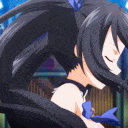
|
this thread is an isekai.
Is that why I always feel like I've recently died when I read it?
|
 #
?
Oct 30, 2019 17:08
#
?
Oct 30, 2019 17:08
|
|
- Dean of Swing
- Feb 22, 2012
-

|
Is that why I always feel like I've recently died when I read it?
Yes
|
 #
?
Oct 30, 2019 17:19
#
?
Oct 30, 2019 17:19
|
|
- Dabir
- Nov 10, 2012
-

|
Alice in Wonderland is an isekai.
More seriously, I find isekai has a lot of literary merit; many isekai that exists may or may not; but there is nothing inherently lacking in merit in the concept.
Isekai is a variation of the Hero's Journey. If you broadly define it as, "A person in the contemporary modern world, or at least a world recognizable as our own and a character who we can immediately relate to as not dissimilar in their issues to ourselves; travels to another world to engage in a fantastical but not necessarily a purely fantasy adventure (so science fiction settings are fine, or non-magic settings and so on, even time travel is fine; this means Doctor Who is also Isekai)."
Now consider the above thought more deeply.
Alice in Wonderland is an Isekai.
The Lion, the Witch and the Wardrobe is an Isekai.
Doctor Who is an Isekai.
Dante's Inferno is an Isekai
Sword Art Online you'd think is an isekai but it only really jumps on the Isekai bandwagon in the Alicization arc. So if Log Horizon and .Hack are also Isekai under this definition I think we've actually have entirely ill defined our genre, and in fact have entirely mistaken genre for storytelling.
Basically why do all of these different shows have so much in common?
Because Joseph Campbell.
Because of Hero with a Thousand Faces and the Hero's Journey.
I'm no literary expert so I am referring to google for the details but the three act structure of the Hero's Journey mostly tracks to all of these shows.
The Departure.
Which is divided into five steps. The ordinary world. Almost every new season in Doctor Who has this when it introduces new companions. Alice in Wonderland has this, I forget if Dante's Inferno had this but I think it skipped it. Most anime has this, prior to being run over by a truck, visions of escaflowne had it for sure. The following steps are Call of Adventure, Refusal of the Call (Optional), Meeting the Mentor (this can be often out of order), and then Crossing the First Threshold.
For Doctor Who this is entering the TARDIS "It's bigger in the inside!" the first indication that their world is going to completely change. For Kirito its booting up (to the audience perspective) SAO for the first time, alice in wonderland is falling down the hole. For Dante it's the "Abandon all Hope" gateway, a literal gate. For most Isekai, especially the "Is killed by a truck and meets a goddess" a number of these steps happen at the sametime.
For most isekai, like Re;Zero:
-The Ordinary World: Subaru in the middle of the night getting fast food from a convenience store.
-The call of adventure: Subaru getting a premonition, which he dismisses (Refusal of the Call).
-Meeting the Mentor: Happens later, is actually substituted with the Mother Figure instead (Emilia), but is arguably could be split between the various characters that help him grow. But in many other Isekai, as an example the comedy KonoSuba, it's meeting Aqua before Kazuma enters the new world after being hit by a truck.
-Crossing the Threshold: Subaru takes a step and suddenly appears in the Fantasy world, literally crossing some threshold or being pulled across it by the Witch, I haven't read the LN's so I don't know.
Subaru is a noteworthy example in that he didn't die or be reincarnated to that other world, so he's one of the few modern isekai protagonists for whom The Return Act exists in a traditional form. For most isekai these days, like KonoSuba, but lets say Tanya: Saga of the Evil or I'm a Spider Now, So what? They died to cross the threshold, hence there is no return act.
Or is there?
I think the hint lies in the Departure Act. We went from a metaphorical crossing of the threshold to its replacement with a literal crossing of the threshold; perhaps the Return Act is similarly replaced. Instead of literally returning home, the Hero or Heroine, returns to a metaphorical home, a state of mind where they have learned important lessons and made a new home for themselves as a complete, fully self-actualized person in their new environment. They have not so much as "returned" home, as they have instead found their home. Afterall, "Home is where the heart is".
Bearing in mind I draw a line between traditional pre-isekai or proto-isekai like Visions of Escaflowne or "Now and Then, Here and There" where they go over and come back having a traditional three-act hero's journey. And the modern Isekai of "Hit by a truck and reincarnates". I think a key thematic undercurrent to most modern isekai is the concept of Alienation.
A large number of isekai protagonists are similar, loser otaku's/neets, who feel abandoned by society, who don't hold meaningful relationships with others, they all live meaningless, inconsequential lives. They are listless, playing games, eating junkfood, whatever family relationships that exist have been destroyed by consumerist, capitalistic forces such that they feel alienation in both the society at large and in their immediate family unit.
People focus too much on the wish-fulfillment power fantasy aspects of Isekai and I think don't give enough credit to these prevalent themes and why they're meaningful social commentary; especially regarding Japan in particular but can be broadly applicable to any modern society. People are dehumanized by capitalism, their existence is meaningless except as defined by their monetary value. So many cut themselves off from society. The ordinary world is much darker, dystopian, and bleak in the case of many modern isekai; it is negative and malicious and actively harmful the the ideal self.
Isekai thus, places you in a world where you can be the very best you can be; where you can meet not only your material needs; but also your spiritual and esoteric needs. Of comrades, lovers, authority/mentor figures, and enemies; people from whom the protagonist can finally properly contextualize and define themselves as someone whose existence is recognized and has meaning. Gods are giving you boons, powerful forces, the Demon Lord, wants you dead because you are a threat, powerful and beautiful women and/or men seek your romantic affections; everyone knows who you are or will by the adventure's end will know.
You are an ubermensch in a world of ubermenschen to borrow from Nietzsche; it is in this world of legitimate challenge and struggle you reach true happiness and fulfillment.
Isekai I think is a very ill defined genre; much like how "anime" kinda blends genre with being a medium because of a certain je ne sais quoi, a anime tv show on average just seems totally different from western television. Most "Isekai" as we recognize them as "Isekai" have actually just as much in common with most if not all adventure stories. They make the Departure Literal and the Return Metaphorical; abridging or expanding on various steps, in short, isekai is just a different spin of the Hero's Journey.
Are some isekai badly written male power fantasy wish fulfillment tripe? Yeah. 90% of everything is poo poo. But that 10% is to die for. I think there is definitely that 10%, regardless of being classical/traditional "isekai" or "modern hit by a truck" isekai, I think they generally work from an interesting pre-existing cultural context; explore meaningful concepts, and possess substantial themes that are important.
After all, Dante's Inferno was for its time, merely the 16th century version of a hatefic chick tract. It invented modern italian so it gets a pass.
sir I just need to know what kind of drinks you want
|
 #
?
Oct 30, 2019 17:22
#
?
Oct 30, 2019 17:22
|
|
- Arc Hammer
- Mar 4, 2013
-
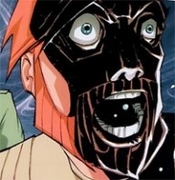
Got any deathsticks?
|
https://www.youtube.com/watch?v=4GzzcepN2yE
|
 #
?
Oct 30, 2019 17:27
#
?
Oct 30, 2019 17:27
|
|
- Raenir Salazar
- Nov 5, 2010
-

"According to Wikipedia" there is a black hole that emits zionist hawking radiation where my brain should have been
I really should just shut the fuck up and stop posting forever
-
College Slice
|
sir I just need to know what kind of drinks you want
"Nuh uh"
|
 #
?
Oct 30, 2019 17:37
#
?
Oct 30, 2019 17:37
|
|
- watho
- Aug 2, 2013
-

The real world will, again tomorrow, function and run without me.


|
Alice in Wonderland is an isekai.
More seriously, I find isekai has a lot of literary merit; many isekai that exists may or may not; but there is nothing inherently lacking in merit in the concept.
Isekai is a variation of the Hero's Journey. If you broadly define it as, "A person in the contemporary modern world, or at least a world recognizable as our own and a character who we can immediately relate to as not dissimilar in their issues to ourselves; travels to another world to engage in a fantastical but not necessarily a purely fantasy adventure (so science fiction settings are fine, or non-magic settings and so on, even time travel is fine; this means Doctor Who is also Isekai)."
Now consider the above thought more deeply.
Alice in Wonderland is an Isekai.
The Lion, the Witch and the Wardrobe is an Isekai.
Doctor Who is an Isekai.
Dante's Inferno is an Isekai
Sword Art Online you'd think is an isekai but it only really jumps on the Isekai bandwagon in the Alicization arc. So if Log Horizon and .Hack are also Isekai under this definition I think we've actually have entirely ill defined our genre, and in fact have entirely mistaken genre for storytelling.
Basically why do all of these different shows have so much in common?
Because Joseph Campbell.
Because of Hero with a Thousand Faces and the Hero's Journey.
I'm no literary expert so I am referring to google for the details but the three act structure of the Hero's Journey mostly tracks to all of these shows.
The Departure.
Which is divided into five steps. The ordinary world. Almost every new season in Doctor Who has this when it introduces new companions. Alice in Wonderland has this, I forget if Dante's Inferno had this but I think it skipped it. Most anime has this, prior to being run over by a truck, visions of escaflowne had it for sure. The following steps are Call of Adventure, Refusal of the Call (Optional), Meeting the Mentor (this can be often out of order), and then Crossing the First Threshold.
For Doctor Who this is entering the TARDIS "It's bigger in the inside!" the first indication that their world is going to completely change. For Kirito its booting up (to the audience perspective) SAO for the first time, alice in wonderland is falling down the hole. For Dante it's the "Abandon all Hope" gateway, a literal gate. For most Isekai, especially the "Is killed by a truck and meets a goddess" a number of these steps happen at the sametime.
For most isekai, like Re;Zero:
-The Ordinary World: Subaru in the middle of the night getting fast food from a convenience store.
-The call of adventure: Subaru getting a premonition, which he dismisses (Refusal of the Call).
-Meeting the Mentor: Happens later, is actually substituted with the Mother Figure instead (Emilia), but is arguably could be split between the various characters that help him grow. But in many other Isekai, as an example the comedy KonoSuba, it's meeting Aqua before Kazuma enters the new world after being hit by a truck.
-Crossing the Threshold: Subaru takes a step and suddenly appears in the Fantasy world, literally crossing some threshold or being pulled across it by the Witch, I haven't read the LN's so I don't know.
Subaru is a noteworthy example in that he didn't die or be reincarnated to that other world, so he's one of the few modern isekai protagonists for whom The Return Act exists in a traditional form. For most isekai these days, like KonoSuba, but lets say Tanya: Saga of the Evil or I'm a Spider Now, So what? They died to cross the threshold, hence there is no return act.
Or is there?
I think the hint lies in the Departure Act. We went from a metaphorical crossing of the threshold to its replacement with a literal crossing of the threshold; perhaps the Return Act is similarly replaced. Instead of literally returning home, the Hero or Heroine, returns to a metaphorical home, a state of mind where they have learned important lessons and made a new home for themselves as a complete, fully self-actualized person in their new environment. They have not so much as "returned" home, as they have instead found their home. Afterall, "Home is where the heart is".
Bearing in mind I draw a line between traditional pre-isekai or proto-isekai like Visions of Escaflowne or "Now and Then, Here and There" where they go over and come back having a traditional three-act hero's journey. And the modern Isekai of "Hit by a truck and reincarnates". I think a key thematic undercurrent to most modern isekai is the concept of Alienation.
A large number of isekai protagonists are similar, loser otaku's/neets, who feel abandoned by society, who don't hold meaningful relationships with others, they all live meaningless, inconsequential lives. They are listless, playing games, eating junkfood, whatever family relationships that exist have been destroyed by consumerist, capitalistic forces such that they feel alienation in both the society at large and in their immediate family unit.
People focus too much on the wish-fulfillment power fantasy aspects of Isekai and I think don't give enough credit to these prevalent themes and why they're meaningful social commentary; especially regarding Japan in particular but can be broadly applicable to any modern society. People are dehumanized by capitalism, their existence is meaningless except as defined by their monetary value. So many cut themselves off from society. The ordinary world is much darker, dystopian, and bleak in the case of many modern isekai; it is negative and malicious and actively harmful the the ideal self.
Isekai thus, places you in a world where you can be the very best you can be; where you can meet not only your material needs; but also your spiritual and esoteric needs. Of comrades, lovers, authority/mentor figures, and enemies; people from whom the protagonist can finally properly contextualize and define themselves as someone whose existence is recognized and has meaning. Gods are giving you boons, powerful forces, the Demon Lord, wants you dead because you are a threat, powerful and beautiful women and/or men seek your romantic affections; everyone knows who you are or will by the adventure's end will know.
You are an ubermensch in a world of ubermenschen to borrow from Nietzsche; it is in this world of legitimate challenge and struggle you reach true happiness and fulfillment.
Isekai I think is a very ill defined genre; much like how "anime" kinda blends genre with being a medium because of a certain je ne sais quoi, a anime tv show on average just seems totally different from western television. Most "Isekai" as we recognize them as "Isekai" have actually just as much in common with most if not all adventure stories. They make the Departure Literal and the Return Metaphorical; abridging or expanding on various steps, in short, isekai is just a different spin of the Hero's Journey.
Are some isekai badly written male power fantasy wish fulfillment tripe? Yeah. 90% of everything is poo poo. But that 10% is to die for. I think there is definitely that 10%, regardless of being classical/traditional "isekai" or "modern hit by a truck" isekai, I think they generally work from an interesting pre-existing cultural context; explore meaningful concepts, and possess substantial themes that are important.
After all, Dante's Inferno was for its time, merely the 16th century version of a hatefic chick tract. It invented modern italian so it gets a pass.
oh okay that clears things up
|
 #
?
Oct 30, 2019 17:42
#
?
Oct 30, 2019 17:42
|
|
- Bug Squash
- Mar 18, 2009
-
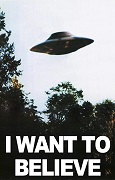
|
Dante's Inferno is an Isekai
Hack Sign was an absolutely stupendous show, no doubt about it. It was clearly built with significantly more care and talent (and what a soundtrack!) than the current generation of mostly schlock Isekais that have come after it.
|
 #
?
Oct 30, 2019 18:02
#
?
Oct 30, 2019 18:02
|
|
- Sibyl Disobedience
- Mar 16, 2018
-
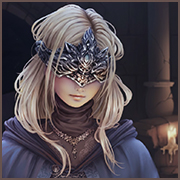
A Fire Keeper's soul is a draw for humanity, and held within their bosoms, below just a thin layer of skin, are swarms of humanity that writhe and squirm.
|
Dante's Inferno is an Isekai
This is the sentence that I never knew I needed.
|
 #
?
Oct 30, 2019 18:24
#
?
Oct 30, 2019 18:24
|
|
- doctorfrog
- Mar 14, 2007
-

Great.

|
Alice in Wonderland is an isekai.
More seriously, I find isekai has a lot of literary merit; many isekai that exists may or may not; but there is nothing inherently lacking in merit in the concept.
Isekai is a variation of the Hero's Journey. If you broadly define it as, "A person in the contemporary modern world, or at least a world recognizable as our own and a character who we can immediately relate to as not dissimilar in their issues to ourselves; travels to another world to engage in a fantastical but not necessarily a purely fantasy adventure (so science fiction settings are fine, or non-magic settings and so on, even time travel is fine; this means Doctor Who is also Isekai)."
Now consider the above thought more deeply.
Alice in Wonderland is an Isekai.
The Lion, the Witch and the Wardrobe is an Isekai.
Doctor Who is an Isekai.
Dante's Inferno is an Isekai
Sword Art Online you'd think is an isekai but it only really jumps on the Isekai bandwagon in the Alicization arc. So if Log Horizon and .Hack are also Isekai under this definition I think we've actually have entirely ill defined our genre, and in fact have entirely mistaken genre for storytelling.
Basically why do all of these different shows have so much in common?
Because Joseph Campbell.
Because of Hero with a Thousand Faces and the Hero's Journey.
I'm no literary expert so I am referring to google for the details but the three act structure of the Hero's Journey mostly tracks to all of these shows.
The Departure.
Which is divided into five steps. The ordinary world. Almost every new season in Doctor Who has this when it introduces new companions. Alice in Wonderland has this, I forget if Dante's Inferno had this but I think it skipped it. Most anime has this, prior to being run over by a truck, visions of escaflowne had it for sure. The following steps are Call of Adventure, Refusal of the Call (Optional), Meeting the Mentor (this can be often out of order), and then Crossing the First Threshold.
For Doctor Who this is entering the TARDIS "It's bigger in the inside!" the first indication that their world is going to completely change. For Kirito its booting up (to the audience perspective) SAO for the first time, alice in wonderland is falling down the hole. For Dante it's the "Abandon all Hope" gateway, a literal gate. For most Isekai, especially the "Is killed by a truck and meets a goddess" a number of these steps happen at the sametime.
For most isekai, like Re;Zero:
-The Ordinary World: Subaru in the middle of the night getting fast food from a convenience store.
-The call of adventure: Subaru getting a premonition, which he dismisses (Refusal of the Call).
-Meeting the Mentor: Happens later, is actually substituted with the Mother Figure instead (Emilia), but is arguably could be split between the various characters that help him grow. But in many other Isekai, as an example the comedy KonoSuba, it's meeting Aqua before Kazuma enters the new world after being hit by a truck.
-Crossing the Threshold: Subaru takes a step and suddenly appears in the Fantasy world, literally crossing some threshold or being pulled across it by the Witch, I haven't read the LN's so I don't know.
Subaru is a noteworthy example in that he didn't die or be reincarnated to that other world, so he's one of the few modern isekai protagonists for whom The Return Act exists in a traditional form. For most isekai these days, like KonoSuba, but lets say Tanya: Saga of the Evil or I'm a Spider Now, So what? They died to cross the threshold, hence there is no return act.
Or is there?
I think the hint lies in the Departure Act. We went from a metaphorical crossing of the threshold to its replacement with a literal crossing of the threshold; perhaps the Return Act is similarly replaced. Instead of literally returning home, the Hero or Heroine, returns to a metaphorical home, a state of mind where they have learned important lessons and made a new home for themselves as a complete, fully self-actualized person in their new environment. They have not so much as "returned" home, as they have instead found their home. Afterall, "Home is where the heart is".
Bearing in mind I draw a line between traditional pre-isekai or proto-isekai like Visions of Escaflowne or "Now and Then, Here and There" where they go over and come back having a traditional three-act hero's journey. And the modern Isekai of "Hit by a truck and reincarnates". I think a key thematic undercurrent to most modern isekai is the concept of Alienation.
A large number of isekai protagonists are similar, loser otaku's/neets, who feel abandoned by society, who don't hold meaningful relationships with others, they all live meaningless, inconsequential lives. They are listless, playing games, eating junkfood, whatever family relationships that exist have been destroyed by consumerist, capitalistic forces such that they feel alienation in both the society at large and in their immediate family unit.
People focus too much on the wish-fulfillment power fantasy aspects of Isekai and I think don't give enough credit to these prevalent themes and why they're meaningful social commentary; especially regarding Japan in particular but can be broadly applicable to any modern society. People are dehumanized by capitalism, their existence is meaningless except as defined by their monetary value. So many cut themselves off from society. The ordinary world is much darker, dystopian, and bleak in the case of many modern isekai; it is negative and malicious and actively harmful the the ideal self.
Isekai thus, places you in a world where you can be the very best you can be; where you can meet not only your material needs; but also your spiritual and esoteric needs. Of comrades, lovers, authority/mentor figures, and enemies; people from whom the protagonist can finally properly contextualize and define themselves as someone whose existence is recognized and has meaning. Gods are giving you boons, powerful forces, the Demon Lord, wants you dead because you are a threat, powerful and beautiful women and/or men seek your romantic affections; everyone knows who you are or will by the adventure's end will know.
You are an ubermensch in a world of ubermenschen to borrow from Nietzsche; it is in this world of legitimate challenge and struggle you reach true happiness and fulfillment.
Isekai I think is a very ill defined genre; much like how "anime" kinda blends genre with being a medium because of a certain je ne sais quoi, a anime tv show on average just seems totally different from western television. Most "Isekai" as we recognize them as "Isekai" have actually just as much in common with most if not all adventure stories. They make the Departure Literal and the Return Metaphorical; abridging or expanding on various steps, in short, isekai is just a different spin of the Hero's Journey.
Are some isekai badly written male power fantasy wish fulfillment tripe? Yeah. 90% of everything is poo poo. But that 10% is to die for. I think there is definitely that 10%, regardless of being classical/traditional "isekai" or "modern hit by a truck" isekai, I think they generally work from an interesting pre-existing cultural context; explore meaningful concepts, and possess substantial themes that are important.
After all, Dante's Inferno was for its time, merely the 16th century version of a hatefic chick tract. It invented modern italian so it gets a pass.
please no meat touching maam
Only registered members can see post attachments!
|
 #
?
Oct 30, 2019 18:31
#
?
Oct 30, 2019 18:31
|
|
- Fsmhunk
- Jul 19, 2012
-

by Fluffdaddy
|
Aura Battler Dunbine is the best Isekai. I haven't watched any others as I imagine they don't have giant robot in them.
|
 #
?
Oct 30, 2019 18:40
#
?
Oct 30, 2019 18:40
|
|
- YaketySass
- Jan 15, 2019
-
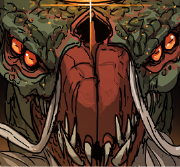
Blind Idiot Dog
|
I was just gonna say that the story of Jezus was the first Isekai, but I'm willing to bet there were Greek or Norse myths that predate the new testament that would fit, but I can't think of any offhand.
The Odyssey is about an insufferable military nerd trapped in a fantastical world he has to come back from, where he solves every problem by being a smartass. He brutalizes the locals, has to chase off every woman he meets from jumping on his dick, and every time one of his subordinates disagree with him they get killed and he's proven right.
Which is to say you can twist a very large number of stories into sounding like an isekai, but Raenir's post is on point and isekai is a pretty specific iteration of a very old story style. I'd add that a frequent fixture of the genre is a postmodern sense of genre savvyness: the world works like a video game, or the characters are strongly defined by being a broad fantasy archetype the main character recognizes, or he's a Chosen One and his plot relevance is mechanically literal, etc. It's all callbacks to other stories the audience is already fans of. So in a sense it's the anti-Alice in Wonderland: the fantasy isn't of going to a strange world of wonder and surprise where you're lost and disoriented, it's of exploring something you already know and where you, as a consumer of media, are already primed to exploit the rules that control it. The world is sold as being more orderly, straightforward and rewarding than messy reality, mostly by being aggressively similar to pre-existing fiction.
|
 #
?
Oct 30, 2019 18:49
#
?
Oct 30, 2019 18:49
|
|
- Bonaventure
- Jun 23, 2005
-

by sebmojo
|
Joseph Campbell’s ideas are only respected anymore by people who have cozy memories of watching The Power of Myth and the Divine Comedy is not an “isekai “ please stop trying to kill me with internet posts
|
 #
?
Oct 30, 2019 18:50
#
?
Oct 30, 2019 18:50
|
|
- Bonaventure
- Jun 23, 2005
-

by sebmojo
|
Dante’s Inferno is not a poem it is a god of war clone published by electronic arts
|
 #
?
Oct 30, 2019 18:52
#
?
Oct 30, 2019 18:52
|
|
- Bug Squash
- Mar 18, 2009
-

|
Aura Battler Dunbine is the best Isekai. I haven't watched any others as I imagine they don't have giant robot in them.
Check out Escaflowne. Sword fighting mechs and a pretty nice sound track.
|
 #
?
Oct 30, 2019 19:01
#
?
Oct 30, 2019 19:01
|
|
- Annointed
- Mar 2, 2013
-
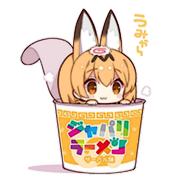
|
All humans are in an isekai from the world of the womb to the reality of surface Earth.
|
 #
?
Oct 30, 2019 19:03
#
?
Oct 30, 2019 19:03
|
|
- Hiro Protagonist
- Oct 25, 2010
-
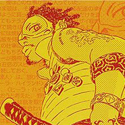
Last of the freelance hackers and
Greatest swordfighter in the world
|
The problem with the word "isekai" is that it's a single word used to define three things: the "protagonist entering another world" trope, the "Japanese media where a character from the modern world is reborn into a fantastical world" genre, and the "modern anime trend of wish fullfillment media where modern Japanese protagonists are reborn in JRPG inspired worlds". All are valid, but they can include wildly different media under each umbrella.
|
 #
?
Oct 30, 2019 19:03
#
?
Oct 30, 2019 19:03
|
|
- Raenir Salazar
- Nov 5, 2010
-

"According to Wikipedia" there is a black hole that emits zionist hawking radiation where my brain should have been
I really should just shut the fuck up and stop posting forever
-
College Slice
|
The Odyssey is about an insufferable military nerd trapped in a fantastical world he has to come back from, where he solves every problem by being a smartass. He brutalizes the locals, has to chase off every woman he meets from jumping on his dick, and every time one of his subordinates disagree with him they get killed and he's proven right.
Which is to say you can twist a very large number of stories into sounding like an isekai, but Raenir's post is on point and isekai is a pretty specific iteration of a very old story style. I'd add that a frequent fixture of the genre is a postmodern sense of genre savvyness: the world works like a video game, or the characters are strongly defined by being a broad fantasy archetype the main character recognizes, or he's a Chosen One and his plot relevance is mechanically literal, etc. It's all callbacks to other stories the audience is already fans of. So in a sense it's the anti-Alice in Wonderland: the fantasy isn't of going to a strange world of wonder and surprise where you're lost and disoriented, it's of exploring something you already know and where you, as a consumer of media, are already primed to exploit the rules that control it. The world is sold as being more orderly, straightforward and rewarding than messy reality, mostly by being aggressively similar to pre-existing fiction.
This is a very good addendum, or specifically for "modern" isekai like Re;Zero where Subaru, being Wrong Genre Savvy flails about failing to summon his special cheat power because he wrongly assumes he's in an isekai like anime he's consumed; Re;Zero is a delightful deconstruction/reconstruction of isekai.
Anime's like Visions of Escaflowne didn't have this; so that would be a pretty good way of distinguishing Escaflowne from Re;Zero is that varying degree sense of self-awareness.
The problem with the word "isekai" is that it's a single word used to define three things: the "protagonist entering another world" trope, the "Japanese media where a character from the modern world is reborn into a fantastical world" genre, and the "modern anime trend of wish fullfillment media where modern Japanese protagonists are reborn in JRPG inspired worlds". All are valid, but they can include wildly different media under each umbrella.
Well yeah and this is something I was covering in my post; not only is isekai ill defined with respect to itself, but when you really think about they aren't really at all different from any other vaguely themed adventure story and there's a huge amount of overlap. So originally I wanted to point out, "SAO isn't really isekai" insofar as we compare it to Visions of Escaflowne and others like it, but it is also not that different from Visions of Escaflowne and if it isn't not all that different then what else is it not different from?
Basically a much smarter version of this is just watching Innuendo Studio's video on Adventure game convention/genre as he makes similar arguments/questions.
Joseph Campbell’s ideas are only respected anymore by people who have cozy memories of watching The Power of Myth and the Divine Comedy is not an “isekai “ please stop trying to kill me with internet posts
Stop having fun guys, the fun police are here.
|
 #
?
Oct 30, 2019 19:18
#
?
Oct 30, 2019 19:18
|
|
- Raenir Salazar
- Nov 5, 2010
-

"According to Wikipedia" there is a black hole that emits zionist hawking radiation where my brain should have been
I really should just shut the fuck up and stop posting forever
-
College Slice
|
And some absolutely beautiful aesthetics that really hold up today.
Speaking of Escaflowne but am I crazy or was it a thing in the early 2000's for anime to have these weird out of context compilation films? Escaflowne had some strange movie that was.... Not really at all the same as the TV anime except it echoed the plot of the TV series and I swear it wasn't the first/only anime to do this and I swear I haven't seen it since.
|
 #
?
Oct 30, 2019 19:20
#
?
Oct 30, 2019 19:20
|
|
- Arc Hammer
- Mar 4, 2013
-

Got any deathsticks?
|
They still do those and they almost all tend to suck. It turns out that cramming twenty six episodes into a two hour film fucks with the pacing. Who would have thought?
Compilation movies are my bane because theyre usually hackjobs and they fail to grasps film's strength as a shortform storytelling device. The only time I've seen a compilation film turn out better than a series is Gundam Thunderbolt, and that only worked because the individual episodes were only fifteen minutes long and intended to be shown in a film format anyways.
|
 #
?
Oct 30, 2019 19:24
#
?
Oct 30, 2019 19:24
|
|
- rudecyrus
- Nov 6, 2009
-
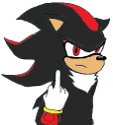
fuck you trolls
|
Ugh.
WWE 2K20 is really, really bad, just like the company itself!
|
 #
?
Oct 30, 2019 19:25
#
?
Oct 30, 2019 19:25
|
|
- nine-gear crow
- Aug 10, 2013
-
|
What I remember most fondly about Escaflowne is that Fox bought it thinking it would be a great and appropriate after school/Saturday morning show for children and then quickly shelved it upon discovering that two major plot points in the show revolve around a main character’s bastard child and the principle antagonist being trans.
Oops.
|
 #
?
Oct 30, 2019 19:26
#
?
Oct 30, 2019 19:26
|
|
- Kaiser Mazoku
- Mar 24, 2011
-
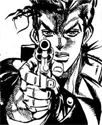
Didn't you see it!? Couldn't you see my "spirit"!?
|
The only isekai anyone should watch is El Hazard.
|
 #
?
Oct 30, 2019 19:31
#
?
Oct 30, 2019 19:31
|
|
- Nuns with Guns
- Jul 23, 2010
-
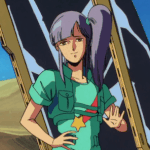
It's fine.
Don't worry about it.
|
this thread is an isekai.
which posters are the psycho protags and which ones are the catgirl slaves?
|
 #
?
Oct 30, 2019 19:35
#
?
Oct 30, 2019 19:35
|
|
- Dapper_Swindler
- Feb 14, 2012
-
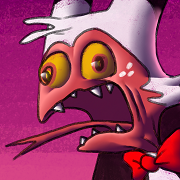
Im glad my instant dislike in you has been validated again and again.
|
havent those games been going down hill for a couple years now?
This is the sentence that I never knew I needed.
i mean it kinda is. it even has a weird mary sue protag and weird stalker crush.
|
 #
?
Oct 30, 2019 19:45
#
?
Oct 30, 2019 19:45
|
|
- Arc Hammer
- Mar 4, 2013
-

Got any deathsticks?
|
I'm the only lizardman in the thread/story and nobody will comment on my presence. (Really though that always weirds me out in these types of shows)
|
 #
?
Oct 30, 2019 19:51
#
?
Oct 30, 2019 19:51
|
|
- Babysitter Super Sleuth
- Apr 26, 2012
-
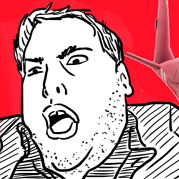
my posts are as bad the Current Releases review of Gone Girl

|
Compilation movies are a thing but they're mostly the doing of studio sunrise, which did escaflowne, all of gundam, and a bunch of other stuff. They got into it in the 80s because Mobile Suit Gundam, which had been a failure in its initial TV run, became very popular in syndication and they wanted to monetize that in the age before VHS. It made a shitload of money because, hey, it turns out that if you take Mobile Suit Gundam, cut out all the extraneous monster of the week garbage the creator didn't even want anyway, and re-animate some of the jankier bits, you get a very compelling space opera about a ship of inexperienced teens trying to not lose their loving minds in the midst of a literally apocalyptic war.
|
 #
?
Oct 30, 2019 19:58
#
?
Oct 30, 2019 19:58
|
|
- A big flaming stink
- Apr 26, 2010
-
|
the best isekai is the web serial The Wandering Inn which is explicitly a western take on the japanese web novel with a slice of life focus.
it also rejects many litrpg tendencies by making the protagonist abhor violence and believe in the worth of every thinking feeling person, including those viewed as subhuman.
go read it!
https://www.wanderinginn.com
|
 #
?
Oct 30, 2019 20:01
#
?
Oct 30, 2019 20:01
|
|
- sexpig by night
- Sep 8, 2011
-

by Azathoth
|
havent those games been going down hill for a couple years now?
i mean it kinda is. it even has a weird mary sue protag and weird stalker crush.
even by wrestling game standards 2k20 is easily one of the worst
|
 #
?
Oct 30, 2019 20:09
#
?
Oct 30, 2019 20:09
|
|
- Adbot
-
ADBOT LOVES YOU
|

|
|
#
?
Apr 24, 2024 08:34
|
|
- Arc Hammer
- Mar 4, 2013
-

Got any deathsticks?
|
Compilation movies are a thing but they're mostly the doing of studio sunrise, which did escaflowne, all of gundam, and a bunch of other stuff. They got into it in the 80s because Mobile Suit Gundam, which had been a failure in its initial TV run, became very popular in syndication and they wanted to monetize that in the age before VHS. It made a shitload of money because, hey, it turns out that if you take Mobile Suit Gundam, cut out all the extraneous monster of the week garbage the creator didn't even want anyway, and re-animate some of the jankier bits, you get a very compelling space opera about a ship of inexperienced teens trying to not lose their loving minds in the midst of a literally apocalyptic war.
Yeah but the tv series is still better than the film trilogy. Especially dubbed.
|
 #
?
Oct 30, 2019 20:24
#
?
Oct 30, 2019 20:24
|
|









